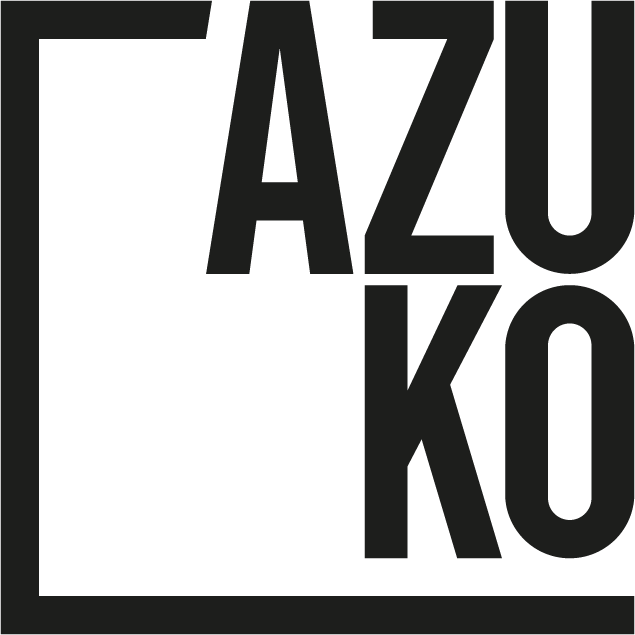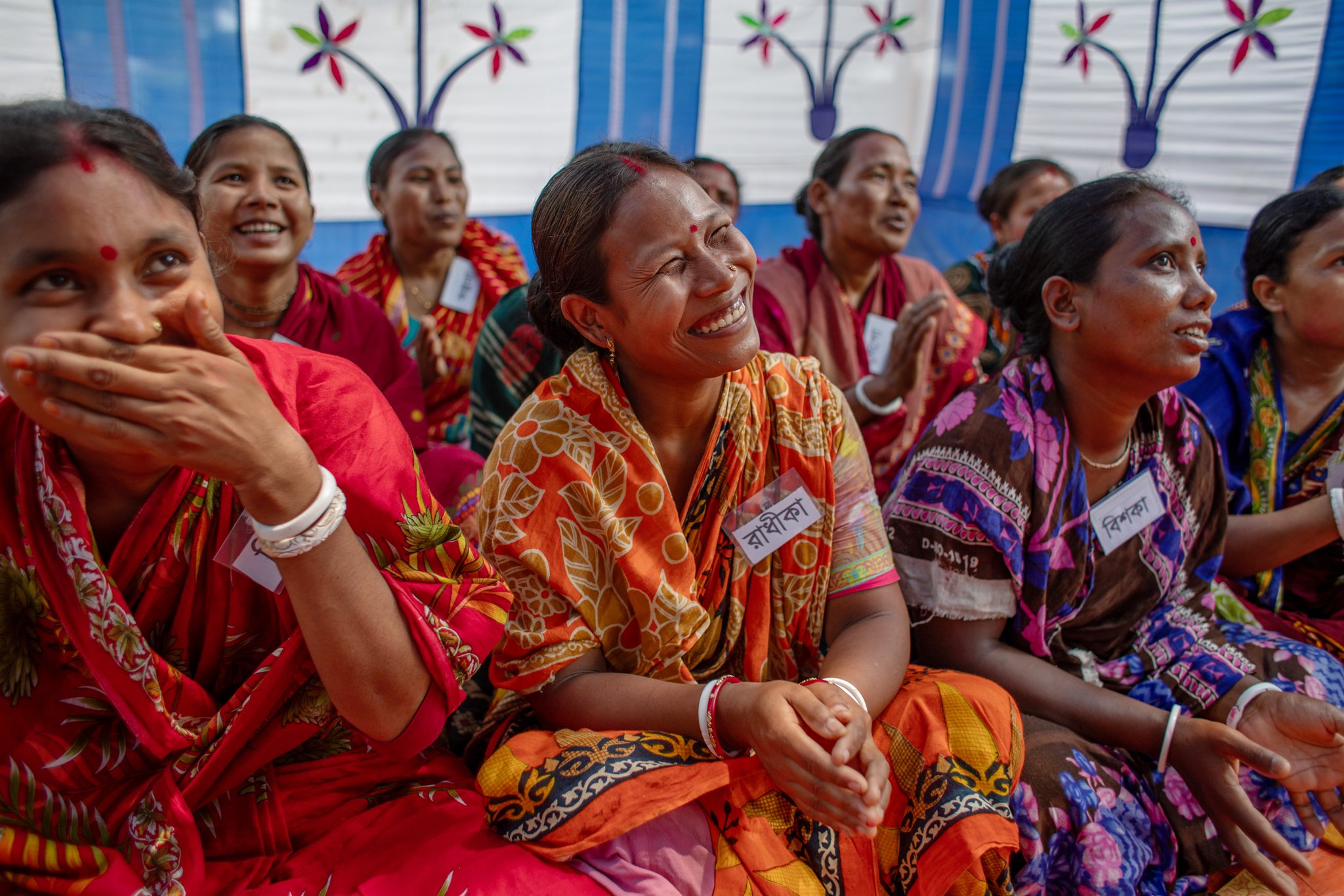Today is World Habitat Day. A day to reflect on the state of our villages, towns and cities, and ultimately the realities associated with inadequate shelter throughout the world.
But what does this really mean and how can we as individuals make a difference to the 1.6 billion who are without access to this basic human right?
You may not see yourself as living in luxury, but let’s consider the alternative:
When your alarm sounds in the morning, you (gracefully?) tumble out of bed and turn on the lights.
In Jorgen Babur Mart, an urban slum in northwest Bangladesh more than five individuals reside in single room dwellings no bigger than 12.5sqm. Living, working and sleeping within those four walls. No privacy, limited comfort. Barely half of the entire country (an estimated 166 million people) have access to electricity and this in unreliable at best. Without electricity a working day is bound by the dawn to dusk cycle, reducing efficiency and productivity - key to escaping the poverty trap.
(Bangladesh Bureau of Statistics / Central Intelligence Agency)
You make your way to the kitchen and fill up the kettle.
Access to clean, safe water is certainly not a given in many parts of the world. In fact one in ten (748 million) don’t have it. A staggering 1,400 children die every day due to water related diseases.
(WaterAid)
You open the fridge, grab a pint of milk and an array of goodies for your signature dish – the English fry-up!
Without refrigeration shopping for essentials becomes a daily chore, taking precious time away from an already jam-packed schedule. All these luxuries which we take for granted... central heating (we don’t have to search for firewood), access to water (we don’t have to walk for miles to fill a jerrycan to wash our clothes), food deliveries (we don’t depend on a good crop to ensure we have enough rice on the table)... mean we can dedicate out time to other pursuits.
(Women’s Refugee Commission)
With the stove lit, it’ll only take a few minutes until you’re sat down, tucking into your breakfast.
Reliance on inefficient cookstoves and poor ventilation leads to chronic and acute health concerns - child pneumonia, lung cancer, pulmonary disease, heart disease, cataracts... In Lesotho alone, nearly 2,000 people die every year from household air pollution. This should simply not be the case.
(Global Alliance for Clean Cookstoves)
A quick run to the toilet and you’ll be out the door and on your way to work.
Sanitation and everything that this conjures in the mind is often a taboo subject - 2.4 billion are living without access to any type of improved facility, please don’t blush. It’s hard to imagine 2 million dying every year from diarrhoeal diseases, most of them less than the age of 5, but it’s true.
(World Health Organization)
Did I say you were just about to leave? Hold on, there are a few more considerations...
You may not live in a malaria-risk zone, but this disease affects nearly half the world’s population. Without improved housing measures, mosquito nets, insecticide, testing and medical intervention, 627,000 die every year. Malaria is both preventable and treatable
(Malaria No More UK)
Apart from the odd snow day, do you ever give a thought to extreme weather events?
The poorest section of society is commonly the most vulnerable to the effects of natural disasters (rising water levels, river bed erosion, environmental degradation, the spread of infectious disease, building / infrastructure damage, disruption to livelihoods, civil conflicts...) Many of these, if not all, are exacerbated by poor housing conditions and lack of access to basic services and infrastructure.
(Intergovernmental Panel on Climate Change / UN-Habitat)
At least your voice is heard!
Democratic elections, thorough census procedures and public consultation are just some of the systems in place to ensure your rights and protection. However the reality is too many people live without secure land tenure and too many are without identity papers, which mean they are deliberately left out of official surveys and maps. They are denied access to systems such as piped water supplies or sewerage, to services such as household waste collections, local policing, schooling and healthcare. Without such recognition one cannot open a bank account, obtain insurance or vote.
(International Institute for Environment and Development)
A place to call home.
We have also assumed have we not, that at the very least people have a roof over their head. I’m writing to you from Mumbai, the commercial capital of India. A city bursting at the seams with an ever growing population. Over the past few decades there has been an international focus on the city’s informal settlements; a drive to create a ‘slum-free’ environment. But how can this possibly be achieved if there is a refusal to acknowledge those at the very bottom of the economic ladder? Pavement dwellers reside under simple tarpaulin sheets, occupying a 2 - 3m stretch of sidewalk, at the mercy of ongoing cruelty, daily threat of eviction and the painful reality of a life without recognition. Enumeration - a simple but powerful tool.
(Shack Slum Dwellers International)
Perhaps you’d now consider yourself as living in luxury? You shouldn't.
Access to adequate shelter in all its facets should not be a luxury, afforded only to those who live and reside in developed regions. The world today is not an equitable place. It is our responsibility both as individuals and as a collective intelligence to effect positive change.
How can you help? How can you make any inroads into the enormity of these issues?
For starters you can make your mark. Today I’d encourage you to sign the petition to the UN to make sustainable cities and human settlements a global priority.
Secondly, AzuKo believes that housing equality is much more than simply provision of units, systems and services. It is about dignity - empowering communities to positively impact upon their own environments.
So, on this global day of reflection, join us in our campaign to raise awareness of our ethos ‘dignity in design’. We are hosting an eBay for Charity Challenge over the next eight weeks as part of the #GivingTuesday movement. We’re asking people to give differently over the holiday season and consider recycling, reuse and redistribution. We’re asking you to think of those without access to adequate shelter and reflect upon the elements in our lives which we take for granted.
What difference can you make? Well, you could support an organisation that works to improve lives through a dignified design process. Mahatma Gandhi said, “be the change that you wish to see in the world” - now imagine the impact we could make if we all embodied this belief.
Join us.
Author: J. Ashbridge







